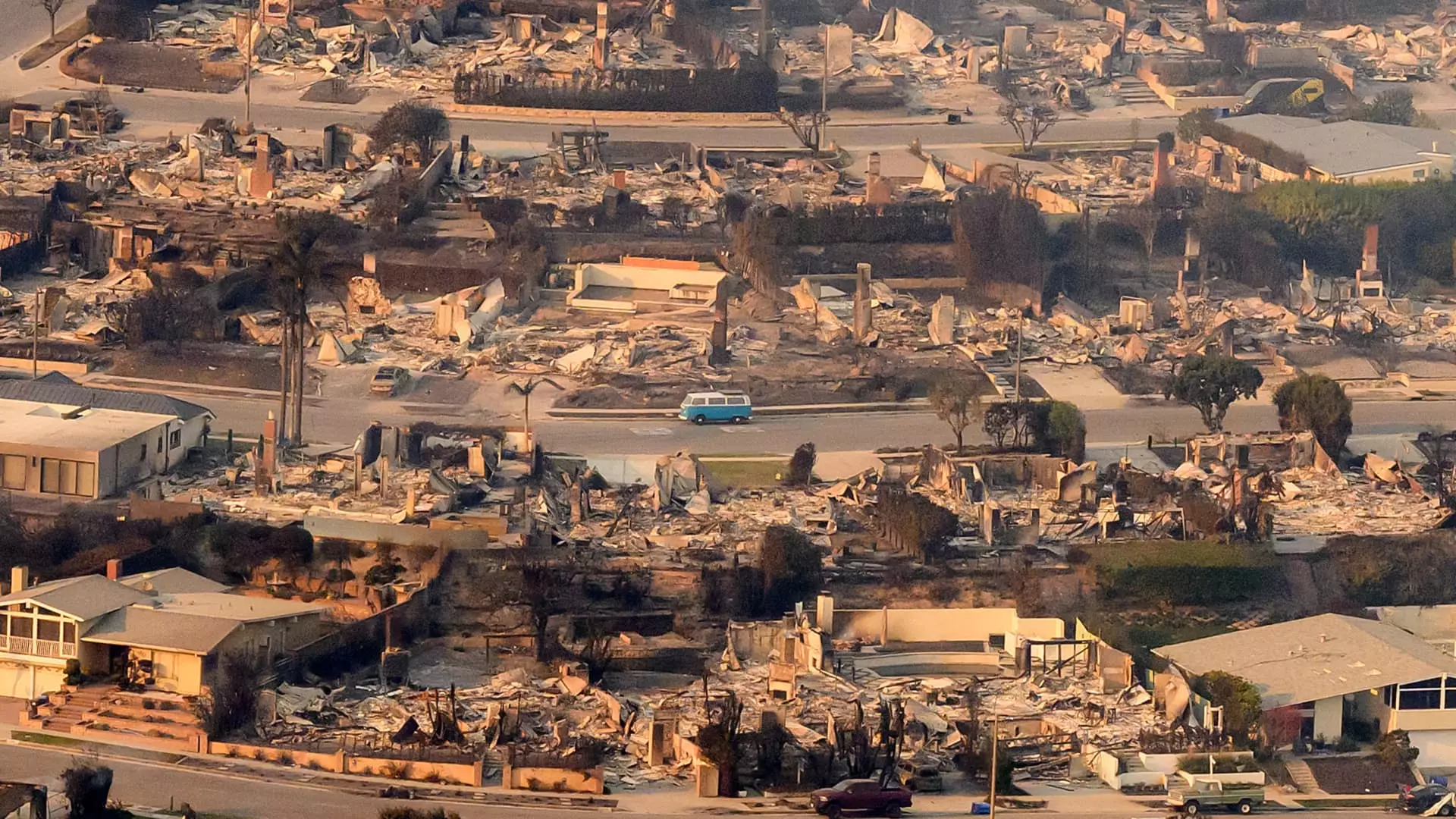The recent escalation of wildfires in Los Angeles has sent shockwaves through the insurance sector, particularly affecting companies highly exposed to the California homeowners’ market. The share prices of major insurers such as Allstate and Chubb plunged sharply, reflecting investor concern over their potential liabilities. Allstate and Chubb experienced a 4% decline in their stock values during morning trading, while AIG and Travelers weren’t far behind, with drops of approximately 2%. This substantial loss classified them as some of the most impacted stocks within the S&P 500 indexes.
According to an analysis conducted by JPMorgan, insurers like Allstate, Chubb, and Travelers are on shaky ground due to their extensive exposure to potential insured losses from the raging fires. Among them, Chubb stands out due to its specialized focus on high-net-worth clients in regions heavily afflicted by the blazes. The analysis suggests that the economic repercussions from the fires could breach historical benchmarks. Current estimates for insured losses from this disaster range around $20 billion, which could escalate if the fires continue their relentless advance.
This projected estimation starkly contrasts with the previously recorded insured damages of $12.5 billion from the catastrophic Camp Fire of 2018, marking a significant escalation in potential financial liabilities for these insurers. Moody’s Ratings anticipates that insured losses will spiral into the billions, attributing this risk to the elevated values of homes and businesses located in the affected zones.
Leading the pack in destructive scale is the Palisades Fire, which has consumed over 17,000 acres and reduced more than 1,000 structures to ashes. The affluence of the Pacific Palisades area, where average house prices soar above $3 million, amplifies the financial stakes. The consequences extend beyond mere property damage; they encompass the long-term stability of the insurance firms that have underwritten policies in this upscale region.
As the fires wreak havoc, insurance companies are proactively seeking to safeguard their interests. Reports indicate that they have urged Southern California Edison to maintain crucial evidence that may clarify the causes of the fire, an essential step in potential liability investigations.
The ripple effects of these catastrophic events have not spared reinsurers either. Companies like Arch Capital Group and RenaissanceRe Holdings saw their shares fall by 2% and 1.5%, respectively, signaling broader market turmoil. The implications of rising loss estimates extend to reinsurance complications, as they potentially breach various insurers’ reinsurance layers, heightening the risk landscape across the industry.
As the dust settles on this disaster, the ripple effect on investor confidence cannot be overstated. The unfolding situation sheds light on the vulnerabilities of the insurance market in face of climate-induced disasters, raising pressing questions about the sustainability of policies and risk assessments in high-risk regions. Moving forward, both insurers and reinsurers may need to reevaluate their strategies to adapt to the rapidly changing climate and its associated risks.

